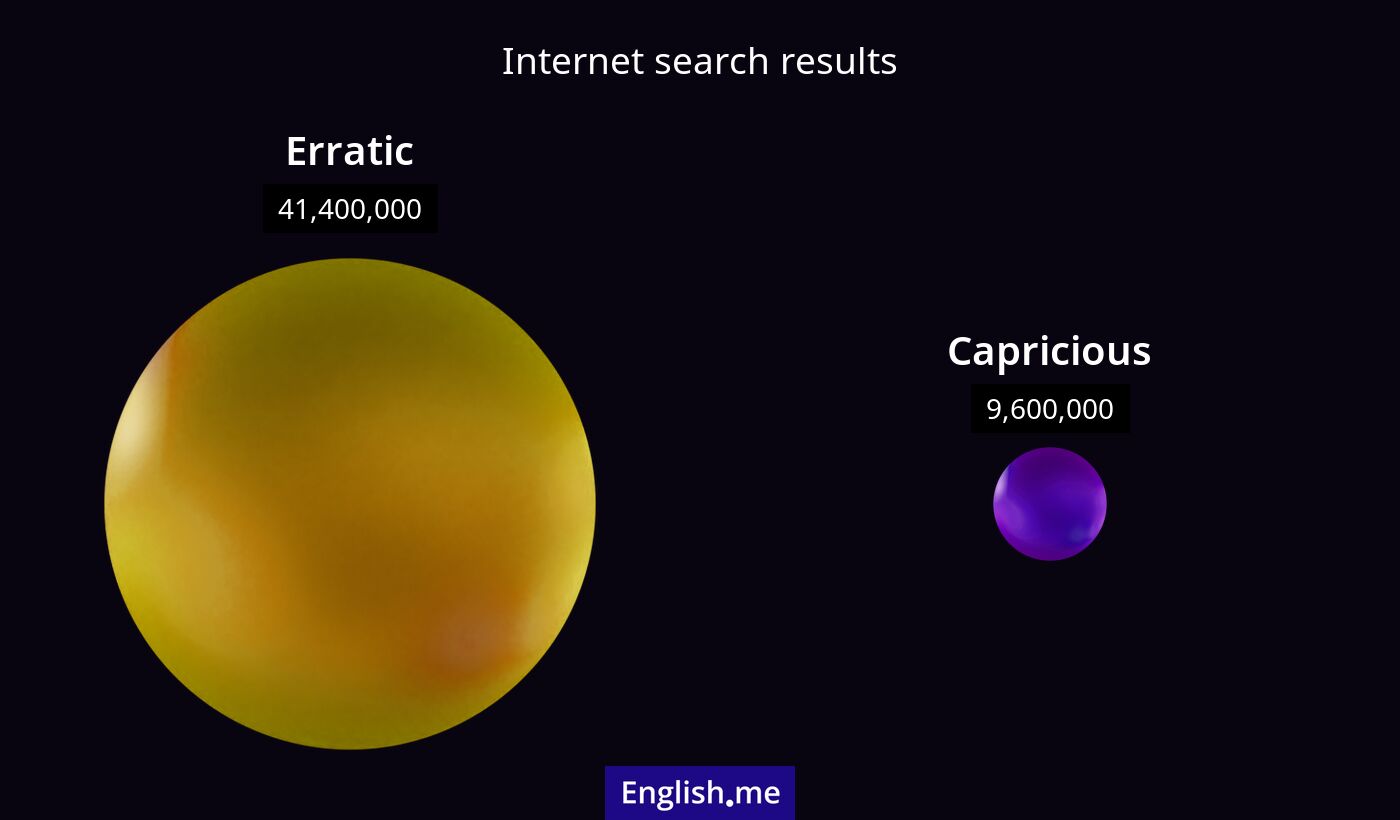"Erratic" vs. "capricious": unpredictability in words
Reviewed and edited by  Lloyd Cooper 19/10/2024, 05:40
Lloyd Cooper 19/10/2024, 05:40
English.me team member

 What is similar?
What is similar?
Both "erratic" and "capricious" describe behavior or actions that are unpredictable and lack consistency. They are often used to characterize moods, patterns, or actions that deviate from what is considered normal or expected.
 What is different?
What is different?
"Erratic" often implies a noticeable deviation from a standard or expected path, highlighting inconsistency without necessarily indicating whimsy or impulsiveness. "Capricious", on the other hand, more strongly suggests impulsiveness or whimsical changes in behavior or mood, often with little reason.
 Which one is more common?
Which one is more common?

 Examples of usage
Examples of usage
Erratic- His erratic driving made it difficult for other motorists to predict his next move.
- The stock market has been particularly erratic this season, causing many investors to worry.
- Her erratic attendance at work led to a formal meeting with her manager.
- The child's capricious nature made it difficult to plan outings.
- Capricious weather patterns this year have baffled meteorologists.
- She was known for her capricious decisions, often changing her mind on a whim.

 English
English español
español française
française italiano
italiano deutsche
deutsche 日本語
日本語 polski
polski česky
česky svenska
svenska Türkçe
Türkçe Nederlands
Nederlands